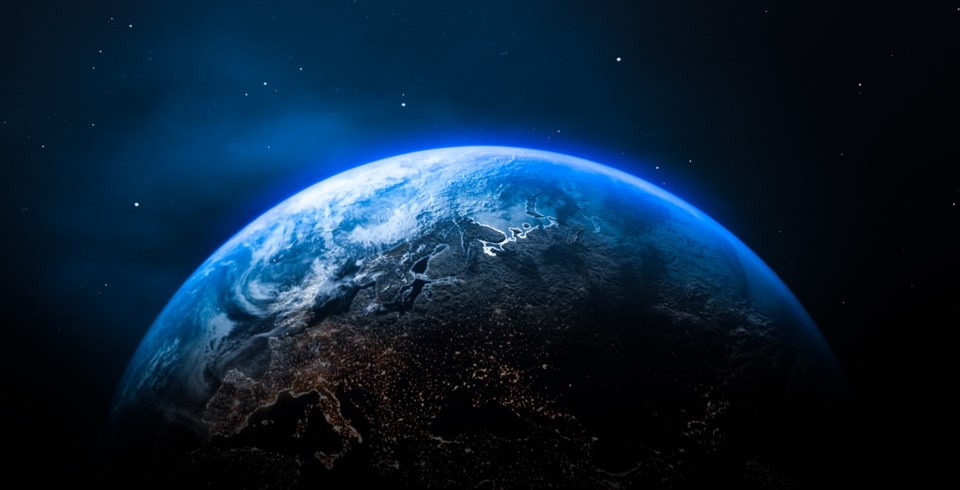Cognitive science offers clues as to why national leaders sometimes make such awful choices in international relations. Professor Andy Clark of Sussex University argues in a new book, , that the human mind operates in mechanical ‘perception-action loops’.
While actions are based on the internal logic of one’s own perceptions, they may lead to self-harm in the real world where opposing perceptions collide.
Could this theory of mind explain why Vladimir Putin took the demonstrably bad decision to invade Ukraine in February 2022? After all, he could have chosen to avoid all the trouble. Consider the rumour that he has a portrait of Czar Nicholas I hanging in the antechamber of his office in the Kremlin. Nicholas I was the Russian leader who, in an 1853-56 war, fought for and lost control of Crimea against Britain, France and the Ottoman Empire. The Czar himself died before his war ended in defeat.
Perhaps this historical baggage of ‘righting a historical wrong’ contributes to Putin’s perceptions of reality. Reuniting parts of the collapsed former Soviet empire most assuredly does as well. He took Georgia with little resistance in 2008. Emboldened, he took Crimea in 2014, again with negligible pushback.
Conditioned to believe it would be easy, he invaded Ukraine itself last year. But this time, facing massive resistance, he persists despite the obvious self-harm. That harm includes not only the failure of the original mission to grab Kyiv and topple the Zelenskyy government, but also the economic sanctions imposed by the U.S. and NATO allies, the expansion of NATO to include Finland and soon Sweden and perhaps even Ukraine itself. And, most importantly, the pointless deaths of thousands of soldiers in the process.
Is this form of bad decision-making the preserve of authoritarian leaders who have the means to act out their delusions?
It would be nice if geopolitics could always be assessed in absolutes: right vs wrong, democracy vs dictatorship, and so on. Unfortunately, it’s more complicated than that. Bad choices are made in democracies as well.
The U.S. invasion of Afghanistan, as justifiable as it seemed at the time, can now be viewed as a poor choice resulting from the emotional reaction to the 9/11 attacks, which were actually perpetrated mostly by Saudi nationals. The subsequent U.S. invasion of Iraq was justified on the mistaken perception – either naive or willful – that Saddam Hussein was building weapons of mass destruction. Similarly, while we perceive NATO expansion to be about spreading democracy and security under the rules-based international system, we cannot prevent Russia from perceiving it as aggression instead.
This brings us to another looming catastrophe. Chinese President Xi Jinping has reportedly set 2027 as the year China will take control of Taiwan. An island inhabited and contested for thousands of years, it was annexed in 1683 by the Qing dynasty of China but ceded to Japan in 1895. Chinese nationalist forces retreated to Taiwan in 1949 after 小蓝视频 overthrown in Mao’s communist revolution.
If these are the historical scores to be settled in Xi Jinping’s thinking, he will almost certainly commit the same mistake as Putin.
And the results will be similarly catastrophic. Any attempt to capture the capital, Taipei, will face enormous resistance. With its island geography and heavy defences, Taiwan will not submit to China’s pressure as Hong Kong did. Nor will a strategy of choking the island into submission through a naval and aerial blockade go off without hitches.
Dominoes would quickly fall. The U.S. Pacific fleet, forward-positioned in Japan, Korea, the Philippines and elsewhere, would advance with allies in support. They would likely stage a retaliatory blockade of energy and other critical supplies to China, seeking co-operation from Saudi Arabia, India, Malaysia, Singapore, Indonesia, Brunei, and others along the supply routes.
China would target rival carrier groups with hypersonic missiles. Russia would come to China’s aid. North Korea might move to take the entire Korean peninsula. It might also lob missiles at Japan. Deployment of troops on the ground couldn’t be ruled out. Nor could Nuclear escalation.
So what exactly would motivate and justify such self-harm to China’s own interests? Again, the West cannot absolve itself of some responsibility for shaping China’s perceptions. Former U.S. President Richard Nixon conceded a one-China policy when he opened relations with Beijing in 1972. This policy, adopted by the U.N. and most member countries, would have been a very clear signal if it hadn’t been combined with the U.S. policy of “strategic ambiguity” over the defence of Taiwan.
In the meantime, the island has emerged as a thriving democracy in recent years. It resists the idea of unification with the mainland but dares not declare independence. It also happens to have risen in geostrategic importance because it supplies 90 per cent of the world’s most advanced semiconductors. U.S. President Joe Biden has said that the U.S. would defend Taiwan, and countering China’s rise is a rare issue garnering bipartisan support in Congress.
Though Xi Jinping will find justifications in his own mind, any challenge to the status quo through the use of force will result in predictably violent reactions. Bad choices from conflicting feedback loops will again lead to self-harm for the aggressor and widespread death and destruction for others.
The peculiarity of human cognition seems to ensure that we will remain our own worst enemies. Sadly, excluding a miracle, this seemingly endless cycle of bad choices will continue to yield catastrophic consequences for global peace and stability.
Randolph Mank is a former Canadian diplomat and business executive. He currently heads MankGlobal consulting, serves on boards, and is a Fellow of the Canadian Global Affairs Institute and the Balsillie School of International Affairs.
©



